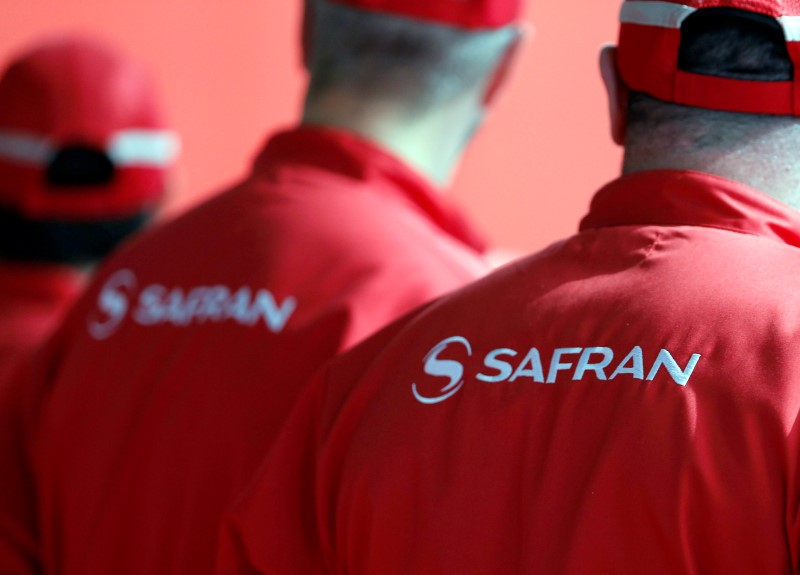Investing.com -- Shares of Safran (EPA:SAF) dropped by over 5% on Thursday after the company posted its 2024-2028 financial targets, which fell short of expectations, particularly with regard to free cash flow.
Safran's FCF forecast of €15 billion to €17 billion over the next five years was 22% below consensus estimates, and its outlook for 2025 FCF—ranging from €2.8 billion to €3.0 billion—was well below the expected €3.4 billion.
For 2028, Safran’s guidance on adjusted EBIT was also weaker than expected, with the company projecting EBIT between €6 billion and €6.5 billion, compared to analysts' expectations of €6.9 billion.
The company also forecast a high-single-digit compound annual growth rate in revenue from 2024-2028, lower than the 10% consensus. For 2025, Safran's guidance for a 10% revenue increase was below expectations, which had called for 16%.
The company’s EBIT forecast of €4.7 billion to €4.8 billion for 2025 was slightly below Morgan Stanley’s estimate of €4.9 billion. While the numbers were seen as conservative, they sparked concerns about growth momentum.
Despite these cautious forecasts, analysts have noted several positives, especially in terms of capital allocation and strategic guidance.
Safran unveiled a €5 billion share buyback program, set to run from 2025 to 2028, representing around 5% of its market cap.
The program, which will imply €1.25 billion in repurchases annually over the next four years, was higher than buy-side expectations of €1 billion annually for three years.
This move, alongside an additional €750 million planned for 2024, signaled a positive shift in capital management, something that analysts believe will be well received by investors, helping to offset any negative sentiment from the cautious revenue and EBIT outlook.
The company’s 2025 guidance also included a 15%-20% growth in LEAP engine deliveries, in line with market expectations.
However, spare parts growth was projected to be in the mid- to high-single digits, slightly below analyst expectations, while service revenue growth was forecasted in the mid-teens, slightly ahead of expectations.
The supply chain was flagged as a key gating factor for Safran's 2025 outlook, and analysts expect this to be a major topic of discussion at the company's upcoming Capital Markets Day.
RBC Capital Markets said that while the 2024-2028 outlook reflects a conservative tone, particularly with the FCF guidance being below its own estimates, there could be upside to this forecast given Safran’s history of outperforming its prior targets.
For instance, the company will start recognizing profits from LEAP-1A aftermarket services in 2025, with LEAP-1B profits expected in 2026.
Safran also emphasized that profit recognition will be gradual, starting with low margins until 80% of contract costs are realized, and that over 80% of LEAP services margins will be recognized after 2030.
Safran’s focus on capital allocation was a key highlight of the day. The company intends to return about 70% of its cumulative FCF generation between 2024 and 2028 to shareholders.
This will include €5 billion in share repurchases over the 2025-2028 period, as well as a dividend payout representing about 40% of FCF.
